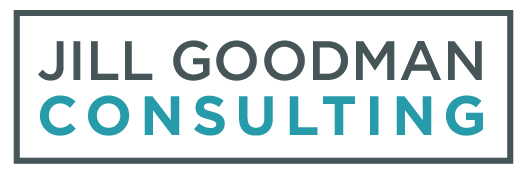Ditch the Online Survey
Appreciative Inquiry was developed in the 1980s as a way to change a corporate culture from one that breeds negativity and isolation to one that encourages cooperation and inclusiveness. I learned about this when I worked as a Development Director and Marcom Manager for a small, independent school. Since then, I’ve used a version of this process that I call an Insight Study to help schools find mission disconnects that may be affecting enrollment and morale, or to better understand how a particular constituency is engaging with the school.
The cornerstone of research vested in positivity is that everyone in the community is heard. Not just presented with an option to give an opinion, as in filling out a survey or claiming the leadership’s door is always open, but actively and systematically seeking out each individual to offer the opportunity to be heard. The beauty in it is the way the questions are framed, and the simplicity of starting conversations with constituents with the same three questions:
What is the most meaningful experience that you have had as a member of the administrative team/faculty/board/parent community at this school? This would be a time when you felt most connected and engaged.
What are the big ideas that would be considered life giving forces to this school? The school would not be the same without them.
What three wishes do you have to enhance the health and vitality of this school?
Note that each question was framed with a positive focus. Interviewers and focus group leaders were oriented in coaching sessions to keep the conversation positive, and ways to re-direct conversations to positivity if in danger of going astray. As a result, I can get a clear picture of the life-giving forces that make a school attractive and compelling to parents seeking both an outstanding education for their child and a community for their family. I find that the energy in the building perceptibly changes the evening we hold focus groups and interviews.
“Can we just send an electronic survey?” you may ask. A school that I worked with surveyed their community with an online form consisting of more than 40 questions to take the “climate” of the community. They expected between 20% and 40% participation after pleading, bargaining, and cajoling. A cloud of negativity would descend with the release of the survey. And why not? Sitting alone with a computer reading a barrage of questions about every aspect of the school and being asked to rate them from “strongly disagree” to “strongly agree” is asking for trouble. Just seeing the words “strongly disagree” 40 times is, well, disagreeable.
The positivity approach is the polar opposite of the online survey, and while schools will still hear many wishes to enhance the health and vitality of the school, they are wishes, not criticism. The distinction for the speaker and the listener is monumental, and it has the power to change and uplift a community’s self perception and spur it to action for change. The very best of what the school does for students and offers to families comes out in this process.
The author, Jill Goodman, is a consultant working with independent school leaders to advance their school’s mission, enhance their processes, and bolster their skills.


